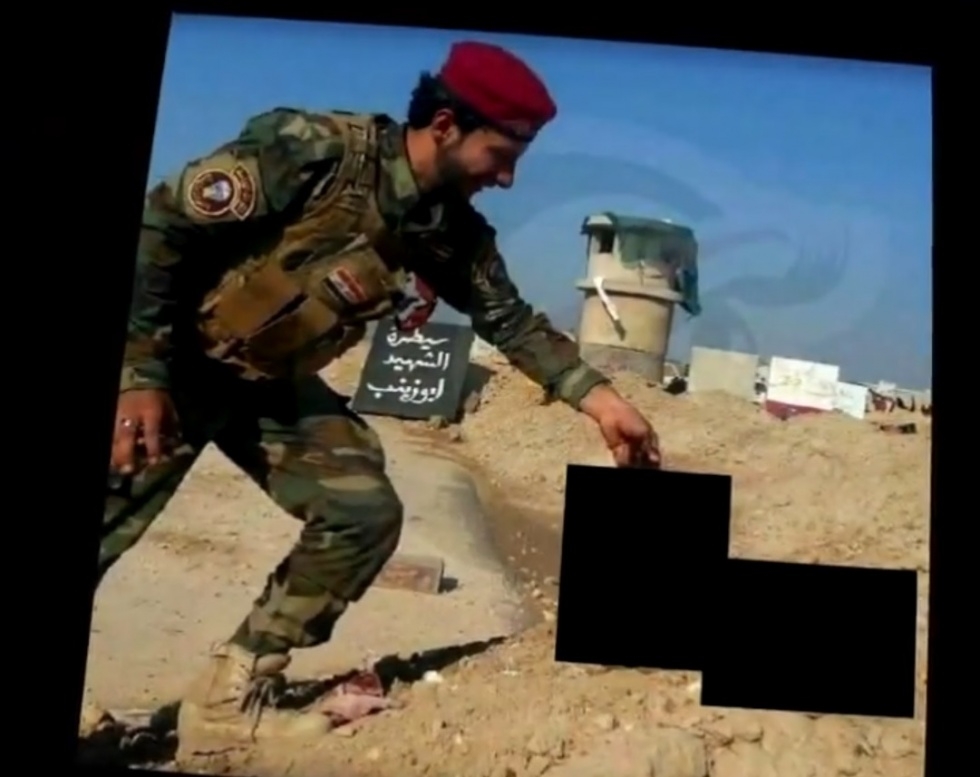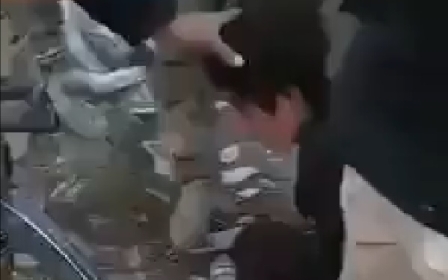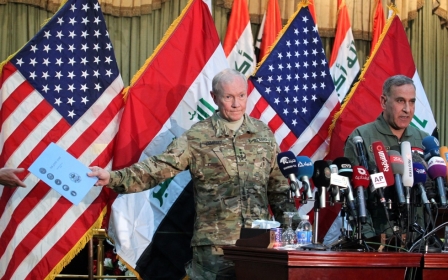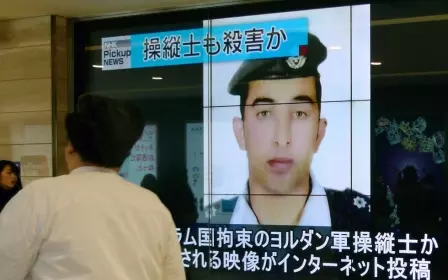Videos allege Iraqi forces are behaving like IS militants

Iraqi armed forces backed by Shiite militias battling the Islamic State (IS) are reportedly carrying out similar atrocities to those perpetuated by IS militants, while also filming them and sharing the videos on social media.
An ABC News investigation revealed visual evidence of a variety of gruesome acts against civilians, allegedly carried by some groups within the Iraqi forces, referred to in the media as the 'dirty brigades'.
The acts include summary executions, torture and beheadings, before posing with the dead bodies or the severed heads – sometimes while smiling. The recorded videos and still images would later be shared with pride on social media platforms, including Instagram and Facebook pages supporting the army and militias.
"Shiite militias have deliberately pushed out very brutal images and a lot of really nasty things," Phillip Smyth, a University of Maryland researcher who specializes in Iraq’s militia activity, was quoted as saying by VoA news on Thursday.
"Fighters are taking this imagery and putting it up ... to kind of demonstrate that they can be tough and just as brutal as the ISIS people and they’re not messing around," he added, while noting that there has been "a real upsurge in terms of quite, quite brutal imagery" since 2014.
The authenticity of the videos, many of which appear to be shot via mobile phone cameras, cannot be independently verified.
However, US Army Special Forces Lieutenant Colonel James Gavrilis told ABC News that the videos in general appear authentic and too abundant online to be faked.
Human rights groups have confirmed the occurrence of such acts.
"Shiite paramilitary militias have often carried out reprisal sectarian attacks against Sunni civilians who are not involved in the hostilities," Donatella Rovera, Amnesty International's senior crisis response adviser, recently told AFP.
And officials from Human Rights Watch and Amnesty International who accessed ABC News investigation's library noted the high number of visual evidence of human rights abuses.
"What we are seeing here is a brazen, proud display of these terrible crimes," Sarah Leah Whitson, Middle East Executive Director at Human Rights Watch, told ABC News.
One example was a gruesome video purportedly showing Iraqi security forces shooting dead a boy after handcuffing him, for reportedly working for IS.
Some pro-Shiite militia commentators took to social media to justify such acts, while others denied that they took place or downplayed their frequency. However, critics pointed to the role of Tehran and Washington in funding, training and arming such groups.
'Painted with the same brush' as IS
US State Department spokeswoman, Jen Psaki, said on Thursday that US has been withholding assistance for some Iraqi military units because of these allegations.
"There are laws in place that have been in place for some time that we have applied to some Iraqi units and certainly we would continue to apply those if applicable," she said, adding that "their behaviour must be beyond reproach or they risk being painted with the same brush as ISIL fighters."
A senior US military official told ABC News that Washington has blocked aid to the un-named Iraqi units, because American law bans the funding of such groups.
'There is no neutral party'
Meanwhile, Iraqi Prime Minister Haider al-Abadi on Thursday blamed these acts on "infiltrators who want to tarnish our victories by committing crimes and serious violations against the security and property of people."
Abadi had already launched an inquiry into massacres carried in areas captured from IS, but his recent speech to parliament - in which he argued that "in this battle, there is no neutral party" - drew criticism from human rights organisations, for suggesting that by not supporting the Iraqi forces means de facto siding with IS.
"Abadi's statement that there can be no neutrality is worrying," Joe Stork, deputy Middle East and North Africa director at Human Rights Watch, told AFP, adding that "any person who is not participating in hostilities directly must be regarded as a civilian, and protected against deliberate or indiscriminate attack."
New MEE newsletter: Jerusalem Dispatch
Sign up to get the latest insights and analysis on Israel-Palestine, alongside Turkey Unpacked and other MEE newsletters
Middle East Eye delivers independent and unrivalled coverage and analysis of the Middle East, North Africa and beyond. To learn more about republishing this content and the associated fees, please fill out this form. More about MEE can be found here.




